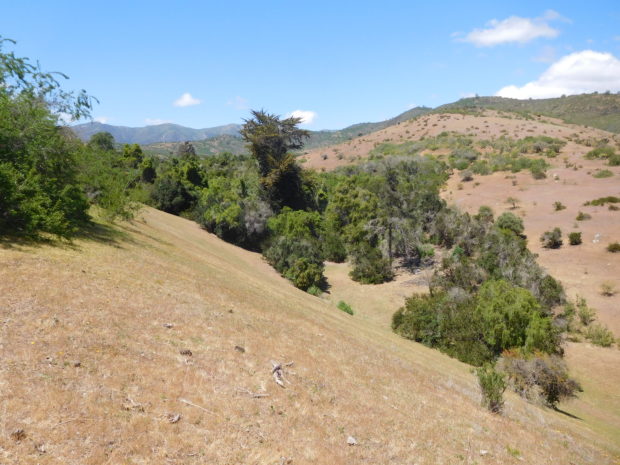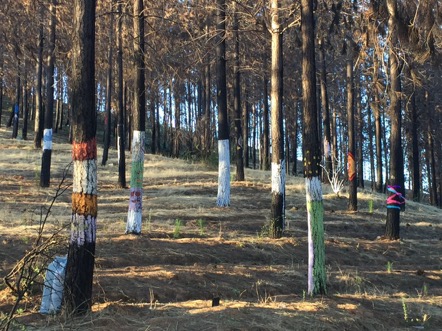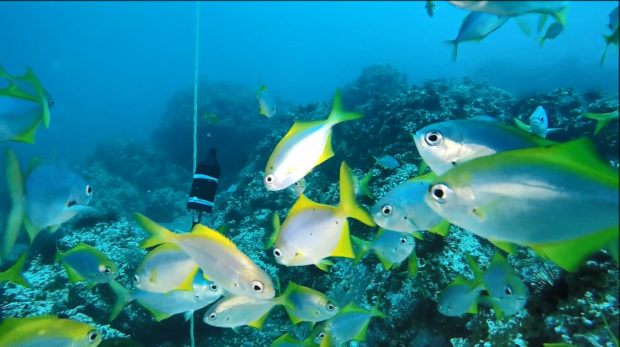
Marshy forests of the region that suffer the same drying conditions of the Ñague forest. Image: Antonio Maldonado.
By Medely Cortés
The so-called “Norte Chico” (Small North) of Chile has a semi-arid climate. Yet shrubs and bushes are common and, there are places where the flora is abundant and that trees seem out of place.
But a short time ago, Chile´s Center for Advanced Studies in Arid Zones (CEAZA) received an alarm call: the Ñague forest was drying up.
Yes, there is a forest in the city of Los Vilos, south of the region of Coquimbo. Its existence dates back thousands of years and has remained firm despite climatic fluctuations.
But lately it has languished.



